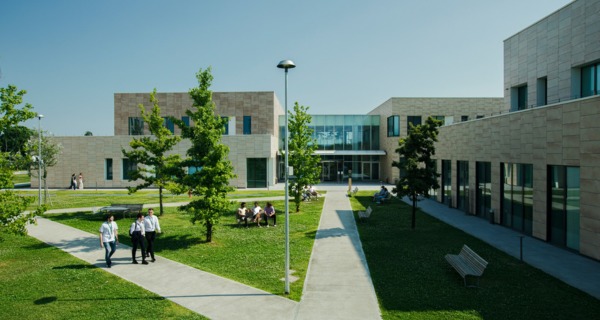Quality Assurance Policies
Humanitas University has defined a Quality Assurance system that ensures best practices in planning, implementation, constant monitoring, and periodic review.
Quality Assurance policies identify the goals and improvement actions and indicate the actors responsible for the University Quality System. The Quality Assurance Unit contributes to defining Quality Assurance policies inspired by the Strategic Plan and proposes indicators to monitor processes and mechanisms related to teaching and learning activities, research, and the third mission. The Quality Assurance Unit is further responsible for disseminating what has been agreed with all the actors involved in the Quality Assurance process.

Teaching Quality Assurance Process
Quality Assurance relating to the activities of the degree programs involves:
- Planning/Design of ongoing or newly instituted programs and includes any amendments to academic specifications.
- Delivery of the teaching and learning activities (publication of academic calendars, organization of lessons, management of classrooms, laboratories and libraries), relative assessment (incoming and outgoing) and student services (incoming, ongoing, and outgoing orientation; support for international mobility; administrative services and the right to study, etc.).
- Monitoring of each degree program, based on the definition, collection, and analysis of ongoing performance data of the study program; evaluation of the delivery of learning outcomes; evaluation and verification of the processes/activities defined by the Teaching Committee; evaluation of the adequate performance of the Quality Assurance procedures.
- Improvement actions to ensure that the results achieved comply with the established objectives from the degree program board, also in light of any requests received from the Joint Teacher Student Committee and the Student Council.
Research and Third Mission Quality Assurance Process
Humanitas University develops quality research that is aligned with the national and international scientific landscape in Life Sciences.
In particular, the University:
- Guarantees its teaching staff suitable conditions to carry out their research activities and promotes participation in competitive funding calls,
- Sponsors research with particular attention to the development of multidisciplinary issues and the sharing of scientific approaches and methodologies within a research system integrated with the Open Science principle,
- Encourages the recruitment of Italian and foreign researchers and professors who have obtained consistent grants, through the allocation of dedicated resources, including direct calls,
- Supports teaching staff and researchers with training activities to promote intellectual property protection and development.
The organization of the Quality Assurance System is based on the collaboration and communication between governing bodies, departments, students and staff as described below, and follows a precise deadline calendar.

